Salvemos el invierno (Reflexiones y Vidapersonal) / Let's Save Winter (Reflections and Personal Life)
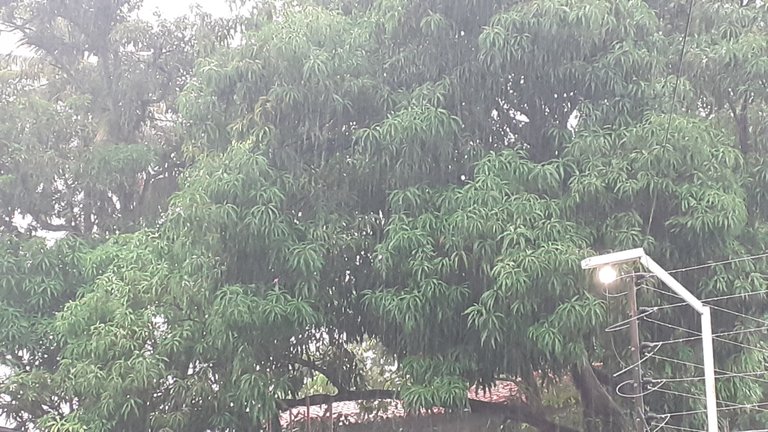
Winter arrives in these hasty days to fill us with the absent spring. The unusual nature holds so many surprises, filled with lots of water and cold temperatures. One looks out the window and can watch the water churn and hit the roof, reminding us that we are part of nature and never, ever its masters. Every drop that falls is a reminder of how small we are in the face of its power.
From the front of my house, I can feel the cold and the dampness as if the sky were about to collapse from the force of the storms. Rain falls on wet earth, and anyone who isn't prepared for its fury can fall. The earth, already saturated, can't absorb any more, and the water seeks new paths (those that were diverted by man), flooding everything in its path.
In an event of which I don't want to give too many details, a character cautiously warned: "There are 9 tropical waves out of 33 that we have left." This means that Guanare isn't the only one experiencing this situation; the entire state and the rest of Venezuela are experiencing severe flooding, which is undermining the mud and even leaving families with material losses. Streets are turning into rivers, and homes into fragile islands.
From the front of my house, I can feel the cold and the dampness as if the sky were about to collapse from the force of the storms. Rain falls on wet earth, and anyone who isn't prepared for its fury can fall. The earth, already saturated, can't absorb any more, and the water seeks new paths (those that were diverted by man), flooding everything in its path.
In an event of which I don't want to give too many details, a character cautiously warned: "There are 9 tropical waves out of 33 that we have left." This means that Guanare isn't the only one experiencing this situation; the entire state and the rest of Venezuela are experiencing severe flooding, which is undermining the mud and even leaving families with material losses. Streets are turning into rivers, and homes into fragile islands.
El invierno llega en estos días presurosos para llenarnos de la ausente primavera. La naturaleza insólita tiene tantas sorpresas llenas de mucha agua y temperaturas frías. Uno se asoma a la ventana y puede observar cómo bate el agua y golpea el techo, recordándonos que somos parte de la naturaleza y nunca, pero nunca, dueños de ella. Cada gota que cae es un recordatorio de lo pequeños que somos ante su fuerza.
Desde la fachada de mi casa, puedo sentir el frío y la humedad como si el cielo se quisiera desplomar de lo recio de los temporales. Lluvia cae en tierra mojada, y quien no esté prevenido en esa furia puede caer. La tierra, ya saturada, no puede absorber más, y el agua busca nuevos caminos (Aquellos que les desviaron por culpa del hombre), inundando lo que encuentra a su paso.
En un acto del cual no quiero decir muchos detalles, un personaje avisó con precaución: "Van 9 ondas tropicales de 33 que nos faltan". Esto quiere decir que no solo Guanare vive esta situación; todo el estado y el resto del país en Venezuela atraviesa una fuerte inundación que socava el barro e incluso está dejando familias con pérdidas materiales. Las calles se convierten en ríos, y las casas, en islas frágiles.
Desde la fachada de mi casa, puedo sentir el frío y la humedad como si el cielo se quisiera desplomar de lo recio de los temporales. Lluvia cae en tierra mojada, y quien no esté prevenido en esa furia puede caer. La tierra, ya saturada, no puede absorber más, y el agua busca nuevos caminos (Aquellos que les desviaron por culpa del hombre), inundando lo que encuentra a su paso.
En un acto del cual no quiero decir muchos detalles, un personaje avisó con precaución: "Van 9 ondas tropicales de 33 que nos faltan". Esto quiere decir que no solo Guanare vive esta situación; todo el estado y el resto del país en Venezuela atraviesa una fuerte inundación que socava el barro e incluso está dejando familias con pérdidas materiales. Las calles se convierten en ríos, y las casas, en islas frágiles.
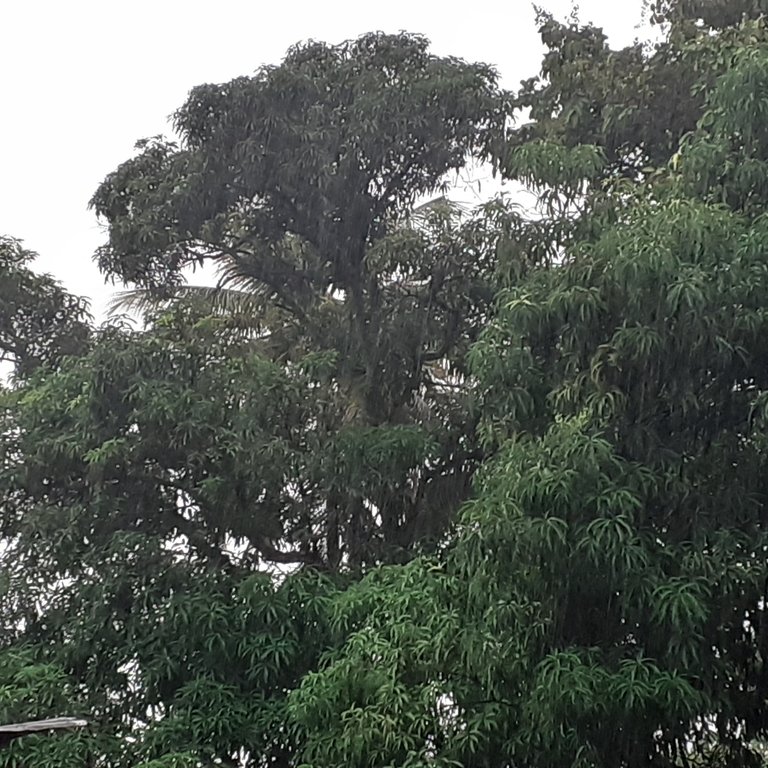
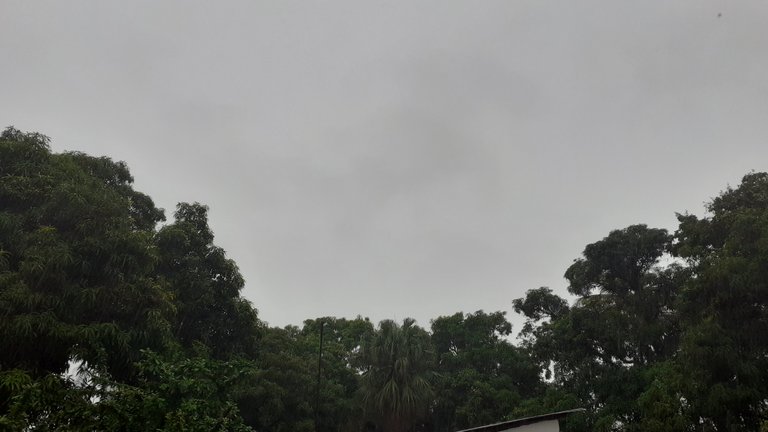
Desde que comenzó el invierno, alguien por ahí murió porque iba en su camioneta y una represa privada lo embistió de tal manera que lo ahogó en medio de agua y lodo. Es necesario entender que gran parte de lo que ocurre tiene que ver con nuestras acciones. Antes, las ondas o tormentas tropicales ni siquiera tocaban el suelo venezolano. Hoy en día se desplazan a nuestra tierra y hacen que haya precipitaciones como las que muestro en esta publicación.
Es una tarea complicada ir al trabajo, así vivas 3 cuadras, porque las calles se inundan y el paso hacia los destinos hace que nuestro destino sea no salir de casa o devolvernos. Si a esto sumamos que algunos sitios turísticos emblemáticos de mi país sufren daños enormes, despidiendo lugares que parecen existir solo en nuestros recuerdos, la situación se vuelve más dolorosa. Por lo menos, nos queda eso y las fotografías.
Nadie quisiera perder su hogar, su sustento o su forma de producir para comer. Tampoco nadie desearía que sucedieran eventos de un invierno exagerado, producto de nuestras relaciones contra el ambiente. Hay una ceguera escandilante para buscar una solución en este punto de retorno. La naturaleza clama justicia, pero ¿estamos escuchando?
En medio de tanta adversidad, conviene recordar que hay formas de cuidarnos cuando la naturaleza se muestra implacable. Lo primero es no subestimar las advertencias: si las autoridades alertan sobre crecidas o deslaves, hay que buscar refugio en zonas altas y evitar cruzar ríos o quebradas, por más familiares que nos parezcan. El agua que avanza con furia no perdona, y lo que ayer fue un camino seguro, hoy puede ser una trampa mortal.
Es una tarea complicada ir al trabajo, así vivas 3 cuadras, porque las calles se inundan y el paso hacia los destinos hace que nuestro destino sea no salir de casa o devolvernos. Si a esto sumamos que algunos sitios turísticos emblemáticos de mi país sufren daños enormes, despidiendo lugares que parecen existir solo en nuestros recuerdos, la situación se vuelve más dolorosa. Por lo menos, nos queda eso y las fotografías.
Nadie quisiera perder su hogar, su sustento o su forma de producir para comer. Tampoco nadie desearía que sucedieran eventos de un invierno exagerado, producto de nuestras relaciones contra el ambiente. Hay una ceguera escandilante para buscar una solución en este punto de retorno. La naturaleza clama justicia, pero ¿estamos escuchando?
En medio de tanta adversidad, conviene recordar que hay formas de cuidarnos cuando la naturaleza se muestra implacable. Lo primero es no subestimar las advertencias: si las autoridades alertan sobre crecidas o deslaves, hay que buscar refugio en zonas altas y evitar cruzar ríos o quebradas, por más familiares que nos parezcan. El agua que avanza con furia no perdona, y lo que ayer fue un camino seguro, hoy puede ser una trampa mortal.
Since winter began, someone out there died because they were riding in their truck and a private dam hit them so hard that they drowned in water and mud. It's necessary to understand that much of what happens has to do with our actions. Before, tropical waves or storms didn't even touch Venezuelan soil. Nowadays, they move to our land and cause rainfall like the ones I show in this post.
It's a complicated task to go to work, even if you live three blocks away, because the streets flood and the journey to our destinations means our destiny is not leaving home or turning back. If we add to this the fact that some emblematic tourist sites in my country suffer enormous damage, losing places that seem to exist only in our memories, the situation becomes more painful. At least, we have that and the photographs.
No one would want to lose their home, their livelihood, or their way of producing food. Nor would anyone wish for the events of an exaggerated winter to occur, a product of our relationship with the environment. There is a scandalous blindness in seeking a solution at this point of return. Nature cries out for justice, but are we listening?
In the midst of so much adversity, it is worth remembering that there are ways to protect ourselves when nature proves relentless. The first thing is not to underestimate the warnings: if the authorities warn of floods or landslides, we must seek refuge in high areas and avoid crossing rivers or ravines, no matter how familiar they may seem. The water that advances with fury is unforgiving, and what yesterday was a safe path, today can be a deadly trap.
It's a complicated task to go to work, even if you live three blocks away, because the streets flood and the journey to our destinations means our destiny is not leaving home or turning back. If we add to this the fact that some emblematic tourist sites in my country suffer enormous damage, losing places that seem to exist only in our memories, the situation becomes more painful. At least, we have that and the photographs.
No one would want to lose their home, their livelihood, or their way of producing food. Nor would anyone wish for the events of an exaggerated winter to occur, a product of our relationship with the environment. There is a scandalous blindness in seeking a solution at this point of return. Nature cries out for justice, but are we listening?
In the midst of so much adversity, it is worth remembering that there are ways to protect ourselves when nature proves relentless. The first thing is not to underestimate the warnings: if the authorities warn of floods or landslides, we must seek refuge in high areas and avoid crossing rivers or ravines, no matter how familiar they may seem. The water that advances with fury is unforgiving, and what yesterday was a safe path, today can be a deadly trap.
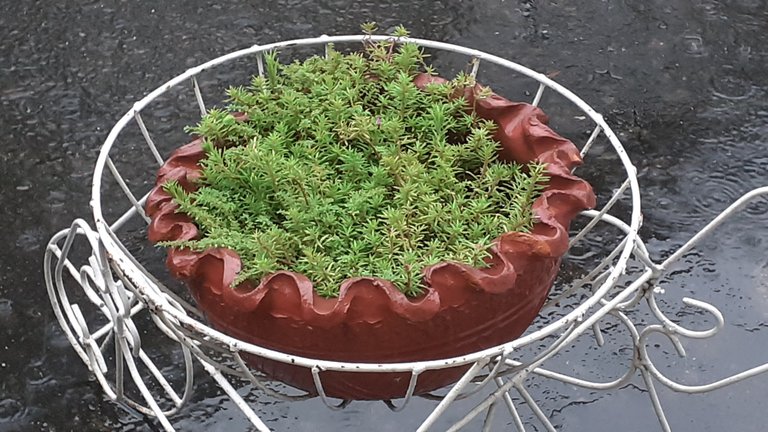
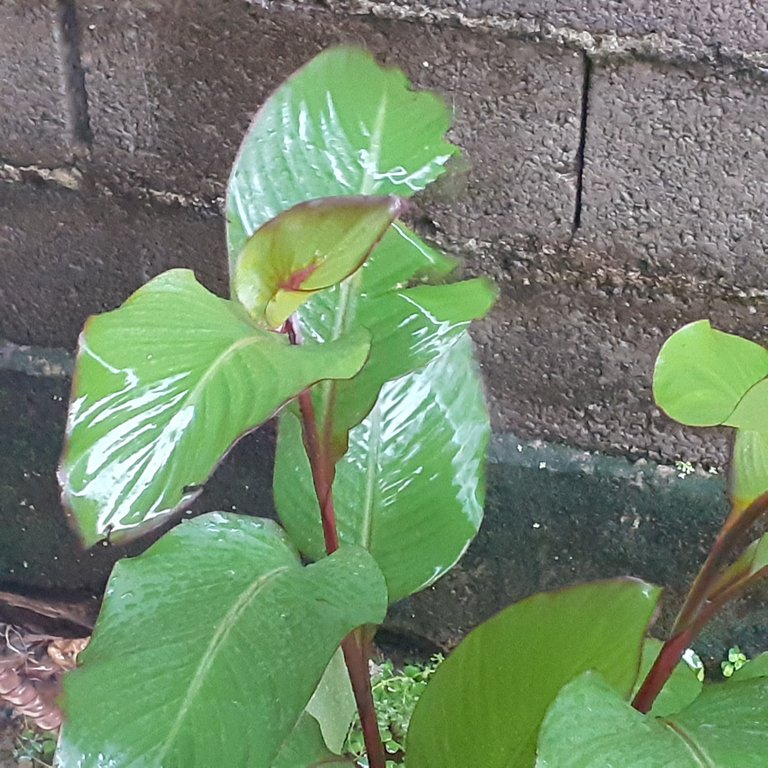
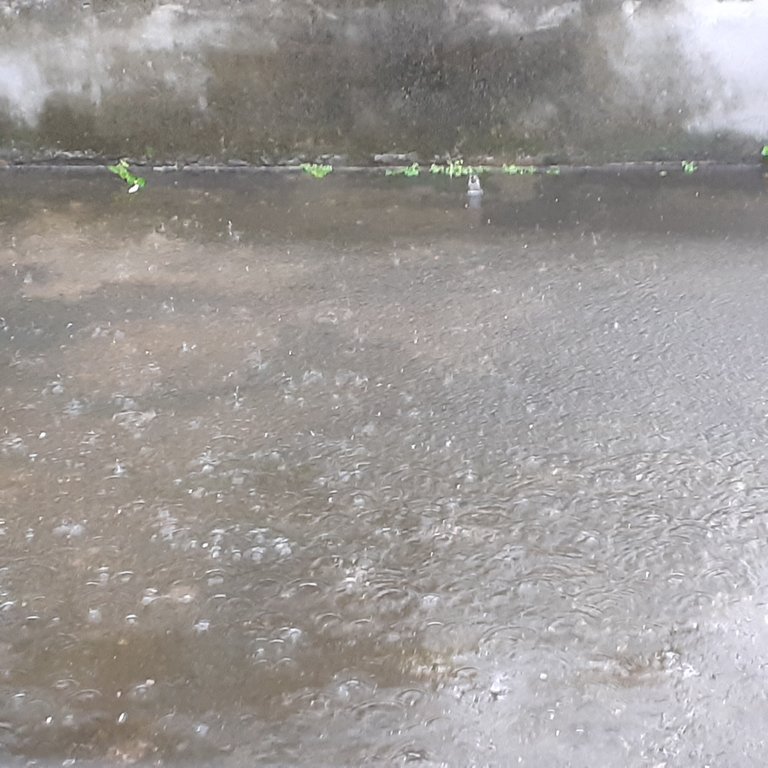
It's also vital to prepare an emergency kit with drinking water, non-perishable food, basic medicines, and important documents. We don't know when the rain will leave us isolated, or for how long, but having the essentials on hand can make the difference between calm and despair. Flashlights and extra batteries are indispensable, because when the power goes out, darkness becomes another enemy.
In cities, where concrete seems to dominate everything, water finds its cracks to remind us that we are not in control. Poorly sealed roofs, broken pipes, and clogged drains are all complicit in flooding. Constantly checking our homes can prevent winter from entering without permission. And if the water has already arrived, we must turn off the electricity: a short circuit can be as dangerous as a current that carries debris.
But beyond protecting ourselves, there is a duty not to make what is already bad worse. Throwing trash in the streets or cutting down trees recklessly are actions that, although seemingly small, make the rains more destructive. Rivers need their channels free to flow, and soils need roots to sustain them. When we intervene without respect, nature takes its toll, and we are not always prepared to pay it.
Perhaps the hardest thing is to accept that these storms are not punishments, but consequences. The earth doesn't hold grudges, but rather memories. Every time we ignore its balance, we lose a little more security, a home, and a future. Today the water pushes us into a corner; tomorrow it could be the heat or the wind. The question is not whether we can rebuild what was lost, but whether we will finally learn to live together without destroying. Until next time. May God grant us greater understanding and bless us.
In cities, where concrete seems to dominate everything, water finds its cracks to remind us that we are not in control. Poorly sealed roofs, broken pipes, and clogged drains are all complicit in flooding. Constantly checking our homes can prevent winter from entering without permission. And if the water has already arrived, we must turn off the electricity: a short circuit can be as dangerous as a current that carries debris.
But beyond protecting ourselves, there is a duty not to make what is already bad worse. Throwing trash in the streets or cutting down trees recklessly are actions that, although seemingly small, make the rains more destructive. Rivers need their channels free to flow, and soils need roots to sustain them. When we intervene without respect, nature takes its toll, and we are not always prepared to pay it.
Perhaps the hardest thing is to accept that these storms are not punishments, but consequences. The earth doesn't hold grudges, but rather memories. Every time we ignore its balance, we lose a little more security, a home, and a future. Today the water pushes us into a corner; tomorrow it could be the heat or the wind. The question is not whether we can rebuild what was lost, but whether we will finally learn to live together without destroying. Until next time. May God grant us greater understanding and bless us.
También es vital preparar un kit de emergencia con agua potable, alimentos no perecederos, medicinas básicas y documentos importantes. No sabemos cuándo la lluvia nos dejará aislados, ni por cuánto tiempo, pero tener lo esencial a mano puede marcar la diferencia entre la calma y el desespero. Las linternas y baterías extra son indispensables, porque cuando la electricidad se va, la oscuridad se vuelve otra enemiga.
En las ciudades, donde el concreto parece dominarlo todo, el agua encuentra sus grietas para recordarnos que no tenemos el control. Los techos mal sellados, las cañerías rotas y los desagües tapados son cómplices de las inundaciones. Una revisión constante de nuestras casas puede evitar que el invierno entre sin permiso. Y si ya el agua llegó, hay que desconectar la electricidad: un cortocircuito puede ser tan peligroso como la corriente que arrastra escombros.
Pero más allá de protegernos, está el deber de no empeorar lo que ya está mal. Tirar basura en las calles o talar árboles sin medida son acciones que, aunque parezcan pequeñas, hacen que las lluvias sean más destructivas. Los ríos necesitan sus cauces libres para fluir, y los suelos, raíces que los sostengan. Cuando intervenimos sin respeto, la naturaleza cobra factura, y no siempre estamos preparados para pagarla.
Quizás lo más difícil sea aceptar que estos temporales no son castigos, sino consecuencias. La tierra no guarda rencor, pero sí memoria. Cada vez que ignoramos su equilibrio, perdemos un poco más de seguridad, de hogar, de futuro. Hoy el agua nos arrincona; mañana podría ser el calor o el viento. La pregunta no es si podremos reconstruir lo perdido, sino si aprenderemos, por fin, a convivir sin destruir. Hasta la próxima. Dios nos dé más entendimiento y nos bendiga.
En las ciudades, donde el concreto parece dominarlo todo, el agua encuentra sus grietas para recordarnos que no tenemos el control. Los techos mal sellados, las cañerías rotas y los desagües tapados son cómplices de las inundaciones. Una revisión constante de nuestras casas puede evitar que el invierno entre sin permiso. Y si ya el agua llegó, hay que desconectar la electricidad: un cortocircuito puede ser tan peligroso como la corriente que arrastra escombros.
Pero más allá de protegernos, está el deber de no empeorar lo que ya está mal. Tirar basura en las calles o talar árboles sin medida son acciones que, aunque parezcan pequeñas, hacen que las lluvias sean más destructivas. Los ríos necesitan sus cauces libres para fluir, y los suelos, raíces que los sostengan. Cuando intervenimos sin respeto, la naturaleza cobra factura, y no siempre estamos preparados para pagarla.
Quizás lo más difícil sea aceptar que estos temporales no son castigos, sino consecuencias. La tierra no guarda rencor, pero sí memoria. Cada vez que ignoramos su equilibrio, perdemos un poco más de seguridad, de hogar, de futuro. Hoy el agua nos arrincona; mañana podría ser el calor o el viento. La pregunta no es si podremos reconstruir lo perdido, sino si aprenderemos, por fin, a convivir sin destruir. Hasta la próxima. Dios nos dé más entendimiento y nos bendiga.

Credits/Créditos:
The images were taken with the camera of my Samsung Galaxy A10 Smartphone, during different days of June 2025, with the arrival of winter and the "new" tropical waves
The final avatar of this publication belongs to and is hyperlinked to @equipodelta
English is not my native language, therefore, I may have grammatical errors, for this I used the translator: https://www.google.com/search?client=firefox-b-d&q=traductor .. God bless you...
The final avatar of this publication belongs to and is hyperlinked to @equipodelta
English is not my native language, therefore, I may have grammatical errors, for this I used the translator: https://www.google.com/search?client=firefox-b-d&q=traductor .. God bless you...
Las imágenes las tomé con la cámara de mi Smarphone Samsung Galaxy A10, durante distintos días de junio de 2025, con la llegada del invierno y las "nuevas" ondas tropicales
El avatar final de esta publicación pertenece y está hipervínculado a @equipodelta
El inglés idioma no es mi idioma nativo, por lo tanto, puedo tener errores gramaticales, para ello usé el traductor: https://www.google.com/search?client=firefox-b-d&q=traductor .. Dios les bendiga...
El avatar final de esta publicación pertenece y está hipervínculado a @equipodelta
El inglés idioma no es mi idioma nativo, por lo tanto, puedo tener errores gramaticales, para ello usé el traductor: https://www.google.com/search?client=firefox-b-d&q=traductor .. Dios les bendiga...
For more information about my universe, you can follow my social networks (click icons)
Para mayor información de mi universo, puedes seguir mis redes sociales (hacer clik iconos)

hive-131951
writing
spanish
reflexiones
reflections
neoxian
pimp
lifestyle
photography
fotografia
ecency
0
0
0.000


🎉🎉🥳 Congratulations 🥳🎊🎊
Your post has just been curated and upvoted by Ecency
keep up the good work
Join us on the Ecency Discord
buen post!
A pollinator from The Pollen Nation feels this post deserves extra attention!
We appreciate your contribution to the blockchain.
For more information or to reach out to us, join our Discord server!